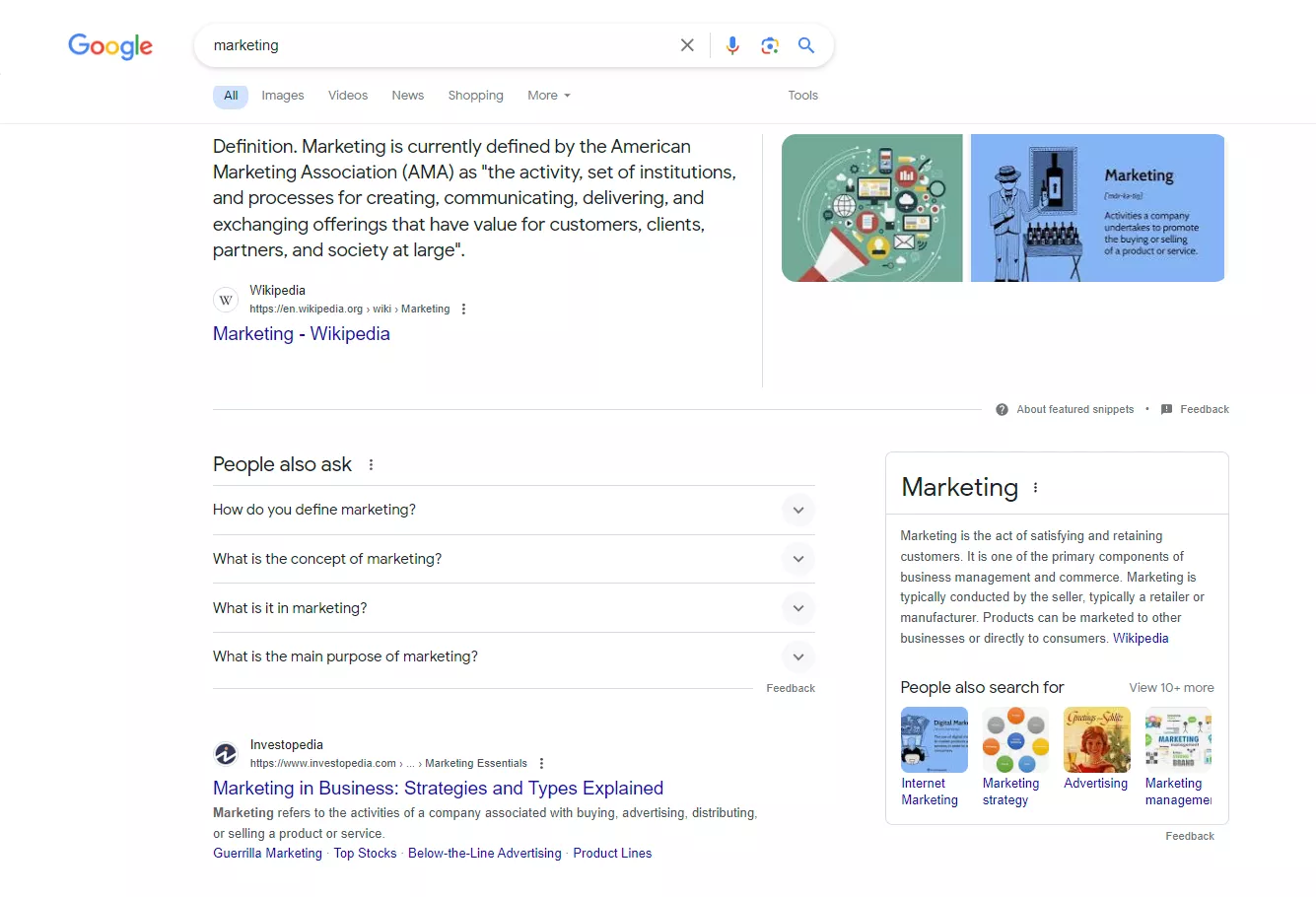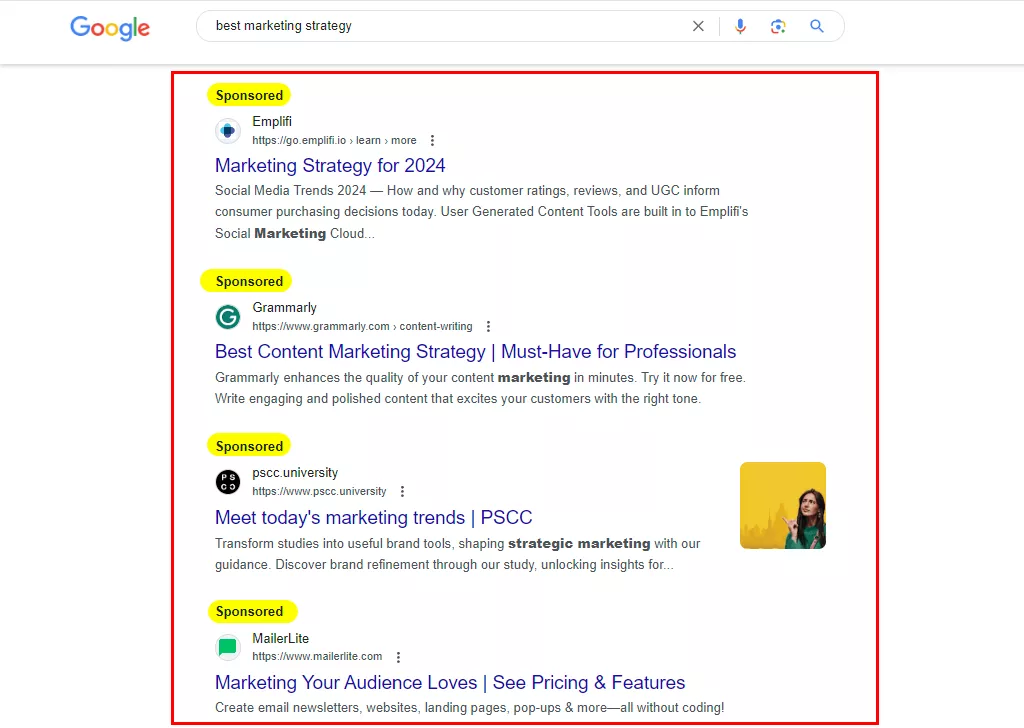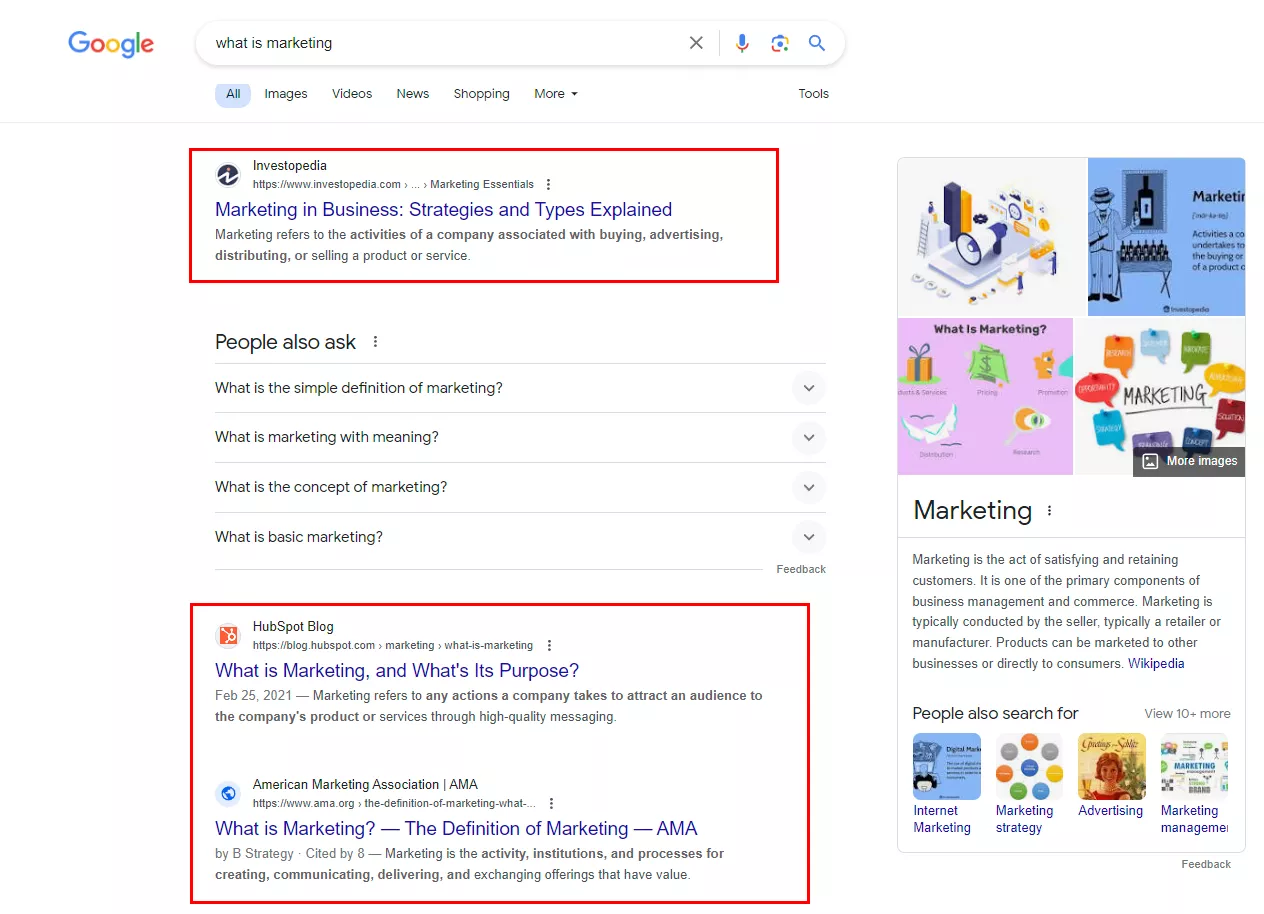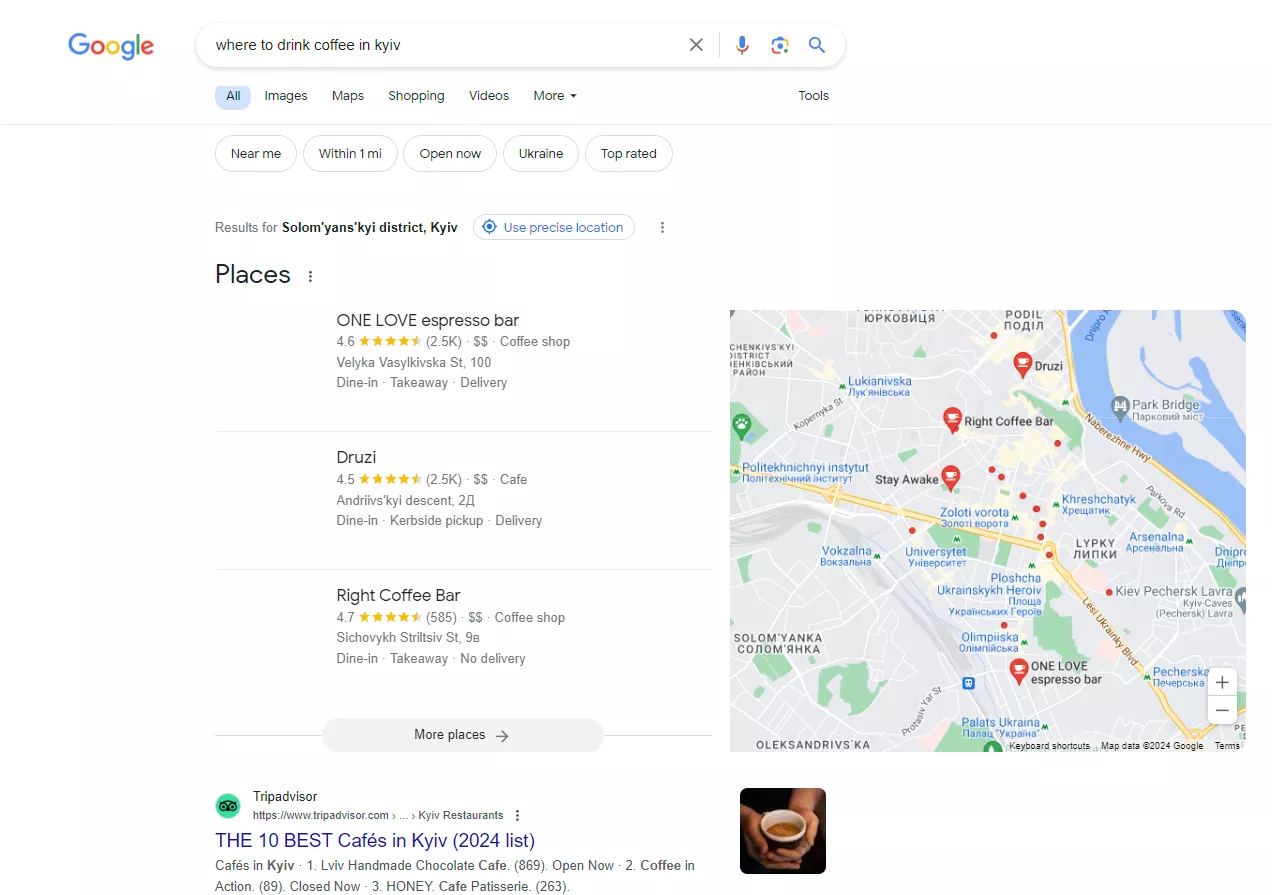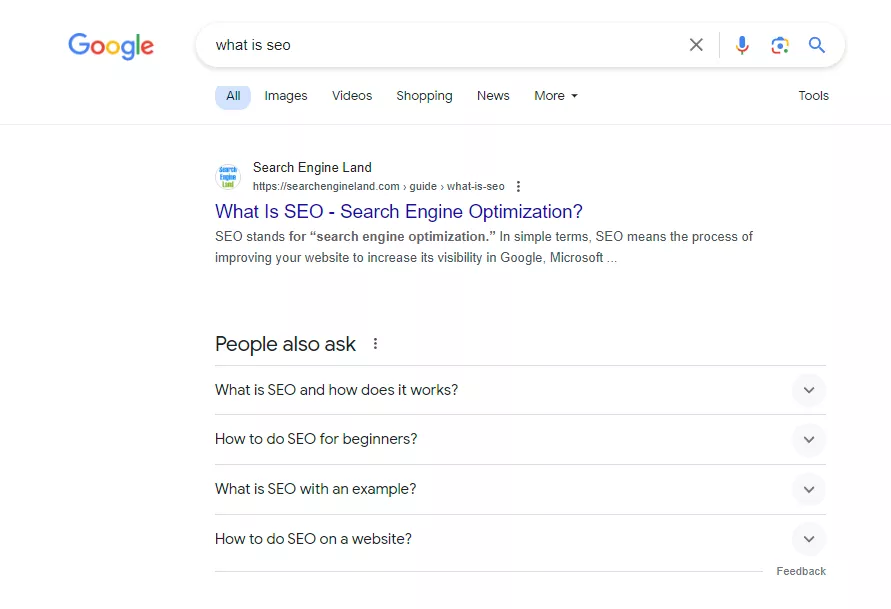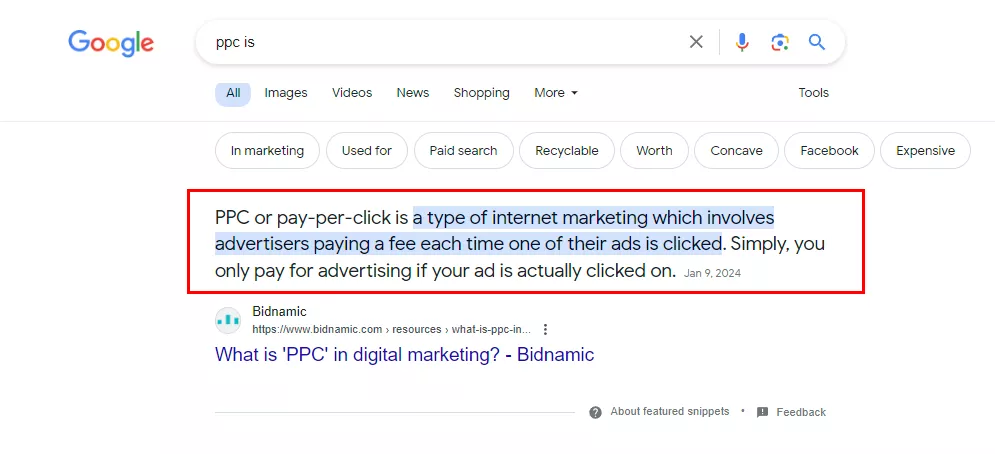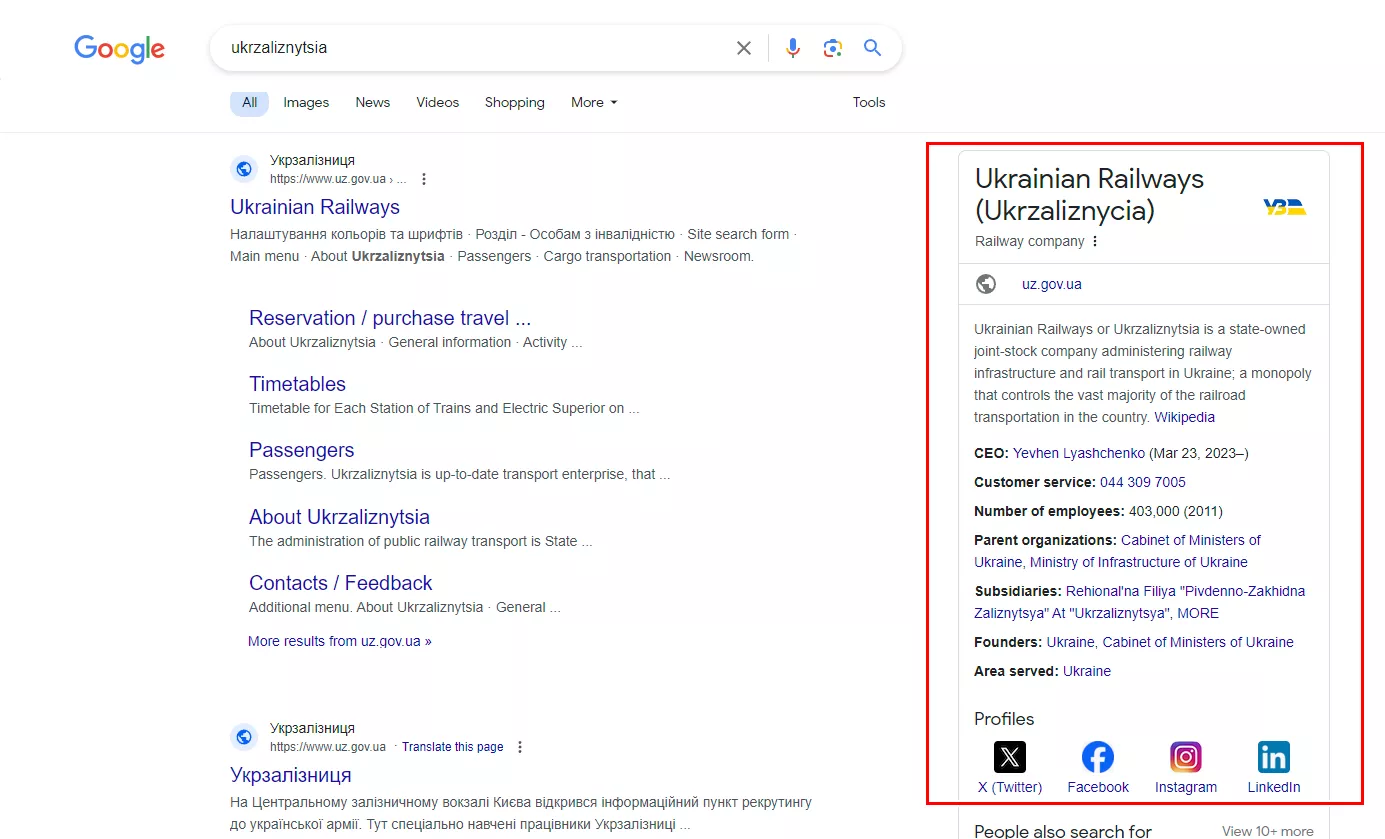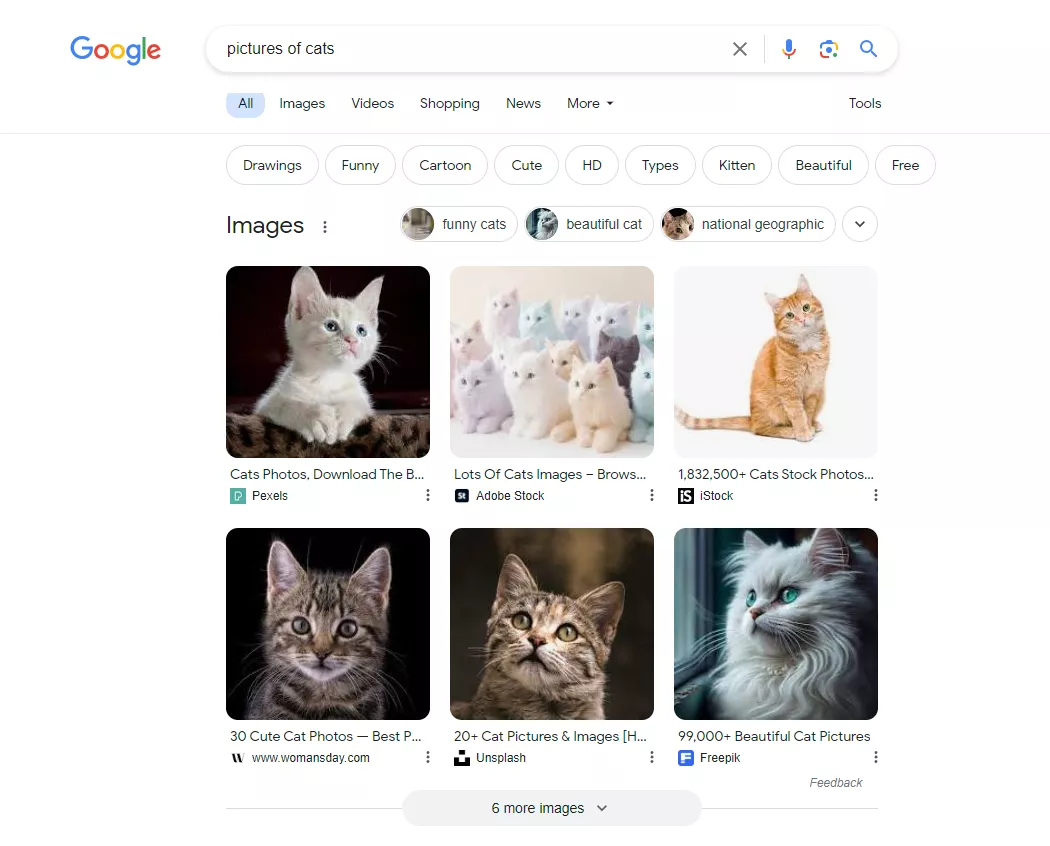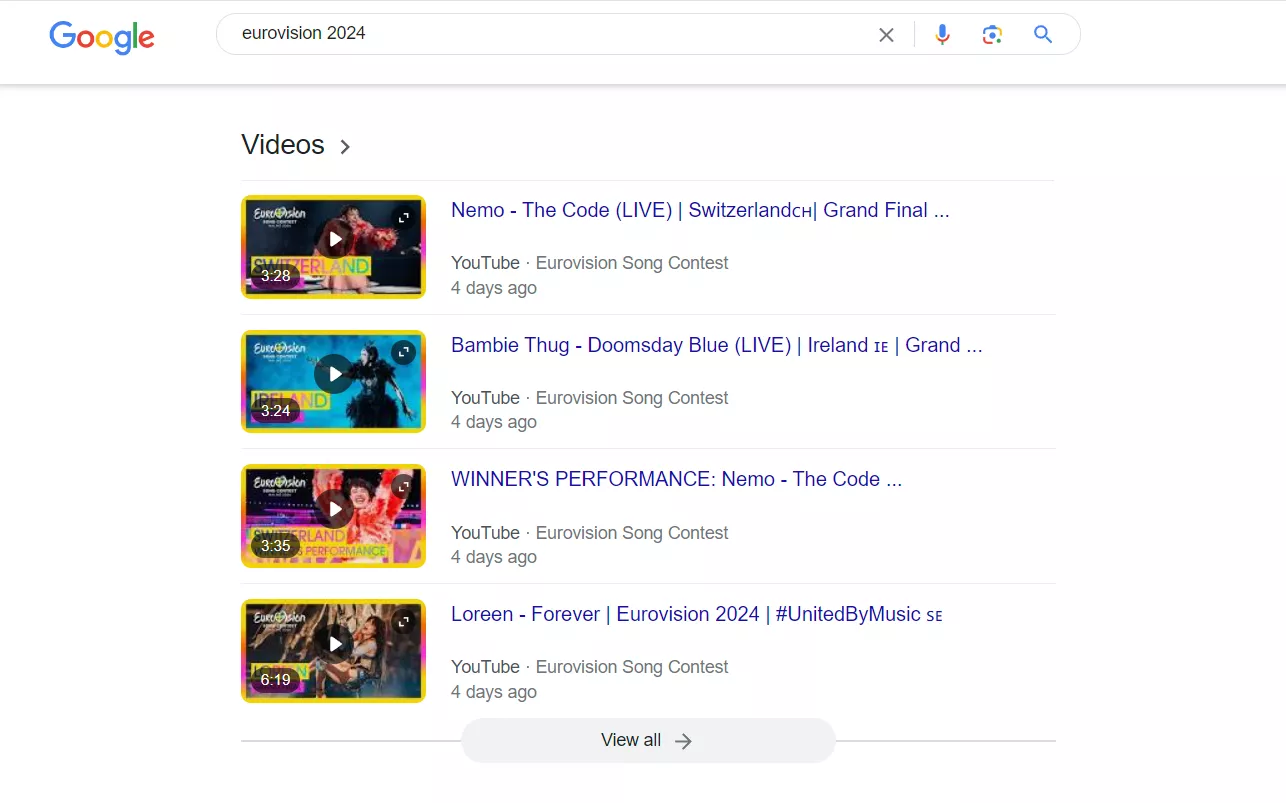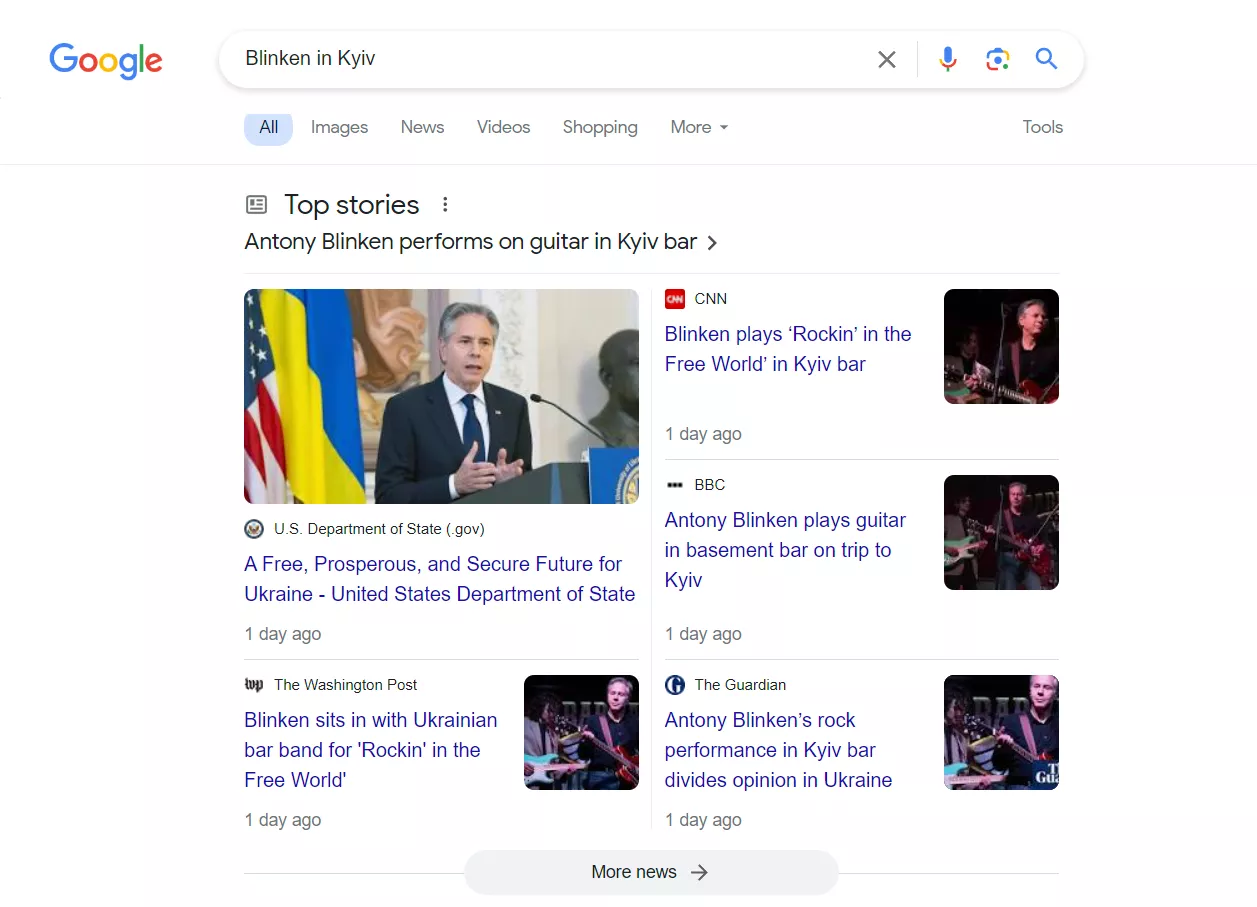SERP, or search engine results pages, is a term to describe the page you see after entering a query into a search engine, such as Google, Bing, or Yahoo. The search result presents a list of web pages that are considered to be the most relevant pages for the user's query.
In this article, I will discuss how search results are formed and whether website owners can influence them.
What is a search engine results page?
Search engine results pages (SERPs) are the pages that are displayed after a user enters a search query. There are several types of SERPs.
Ads in search results
These appear at the top or bottom of the page and are labeled “Ad” or “Sponsored”.
Organic search results
Organic results are a list of web pages that the search engine considers most relevant to the query.
In addition to the listed webpages, Google's SERP has some additional blocks. They are part of the organic search results, but they look different from the regular feed and therefore attract more attention from users. These blocks include:
- Places, which appears when a user searches for local products or services. The block includes a map with business labels and information about the closest businesses.
- People also ask. These are questions frequently asked by other users, presented in the form of a list. You can expand the list to read the answers.
- Featured snippets provide a short answer to a user's question or the most relevant information on a topic. They appear above the organic results.
- Knowledge Panels contain basic information about a company, person, or product that users may find useful. For example, a brief description, a site link, or other basic information.
- Images. If the user's query is visual, e.g., “pictures of cats,” blocks of relevant images may appear in the search results.
- Videos. This block displays videos related to the user’s search query. It includes videos from various platforms, such as YouTube, Vimeo, Dailymotion, and other video hosting sites.
- News Box. It displays news related to a specific user request.
A separate block can also display posts from X (Twitter) or Reddit that match the query. The SERP may also show a selection of products from various online stores or a carousel of movies in the selected genre or starring the actor whose name was in the query.
If you want to improve your business visibility in local search results, consider Local SEO Services to help you appear more often in the local pack and attract nearby customers.
How the SERP is generated
A search engine generates a search result page based on algorithms that evaluate various factors. These are the main steps in SERP generation:
- Receiving a query. When a user enters a search query, the system begins to search for relevant results.
- Indexing. The search engine selects the most relevant results from its database (index).
- Ranking. The system determines the order in which results are displayed.
- Formatting. Results are organized in a specific format, which may include organic results, ad units, special widgets, images, and videos.
- Display. The system displays the generated SERP to the user.
This process is dynamic, so the same query on the same system may generate different search results pages at different times.
Factors that affect search results
For a web page to appear in search results, it must first be indexed. The ranking phase then determines where the site will appear, and the ranking factors differ depending on whether the site is included in paid or organic search results.
Paid search results
Paid search results are ads that are customized and paid for by an advertiser. A paid ad unit in the SERP is influenced by several factors:
- Keyword relevance. Advertisers specify keywords and phrases for which they want their ads to appear. These words must match or be related to the user's search query.
- Advertising budget. Advertisers set the budget for the ad campaign and the price per click (bid) for their ad. The higher the budget or bid, the more likely the ad will win the auction among all advertisers for that query and appear higher in the search results.
- Ad content quality. Google also evaluates the quality of the ad’s content, including the relevance of the ad and the landing page it leads to, clarity, call-to-action, and more. Higher quality ads are more likely to appear in the paid unit.
Read our articles to find out more about how paid advertising works:
- Pay-Per-Click Advertising Model: What It Is and Why You Need It
- Google Ads Match Types: The Ultimate Guide
Organic search results
For a website to appear in organic search results, the search engine has to consider the website content to be relevant to the user query. Rankings are based on a number of factors, including:
- Content relevance. Search algorithms evaluate the relevance of page content to the user's query.
- Content quality. The quality of the text, the use of keywords, and the uniqueness and usefulness of the information to the user are evaluated.
- Website authority. Search engines take into account the authority of the site, its history, and its relevance to a specific query.
- Site structure and technical indicators. This includes page load speed, mobile friendliness, URL structure, and other technical aspects.
- Internal and external links. Page rankings are improved by adding links from other authoritative sites and by enhancing the internal structure.
- Location and personalization. Search engines take into account a user's geolocation, search history, and other personalized factors.
SEO specialists work to optimize pages and websites so that they rank higher in search results.
Conclusions
- The SERP (Search Engine Results Page) is the page of search results that you see after entering a query into a search engine.
- Organic search results are links to web pages that appear in the SERP without payment.
- Paid search results are ads. Advertisers pay search engines for impressions or clicks on these ads.
- In addition to organic and paid results, SERPs can contain other blocks: widgets with maps, images, knowledge cards, etc.
- SERP rankings are determined by several factors, including content relevance, site authority, and technical optimization.
Related Articles
Display Advertising Effectiveness Analysis: A Comprehensive Approach to Measuring Its Impact
In this article, I will explain why you shouldn’t underestimate display advertising and how to analyze its impact using Google Analytics 4
Generative Engine Optimization: What Businesses Get From Ranking in SearchGPT
Companies that master SearchGPT SEO and generative engine optimization will capture high-intent traffic from users seeking direct, authoritative answers
From Generic to Iconic: 100 Statistics on Amazon Marketing for Fashion Brands
While traditional fashion retailers were still figuring out e-commerce, one company quietly revolutionized how U.S. consumers shop for everything from workout gear to wedding dresses

